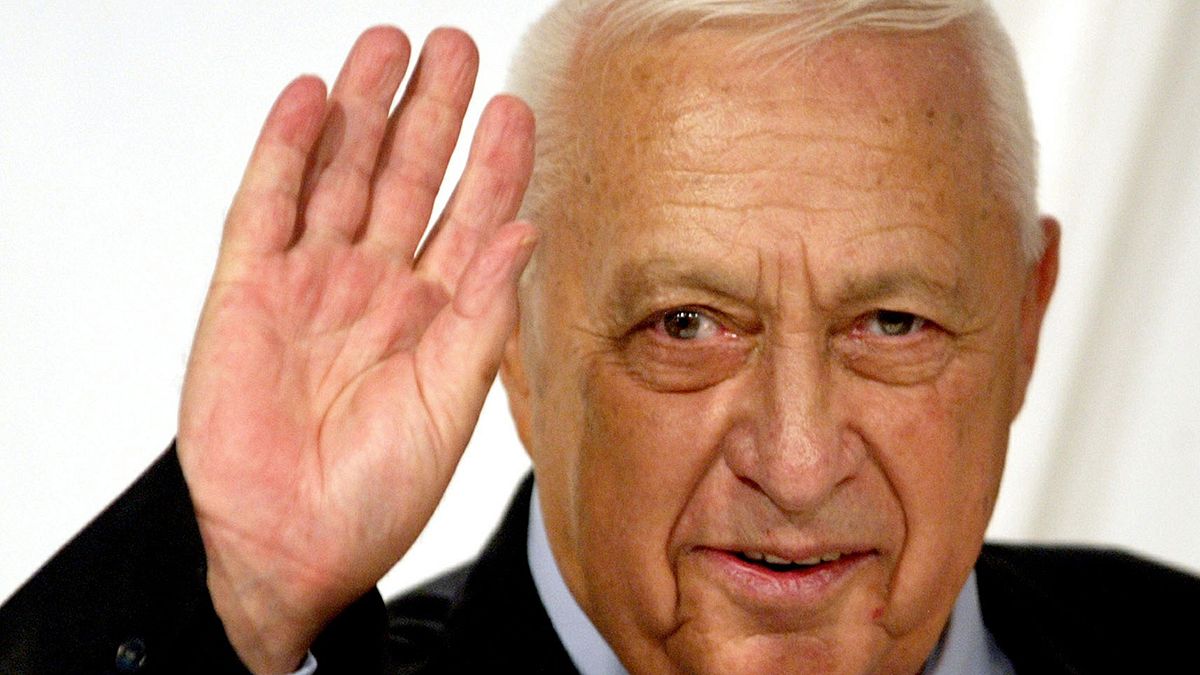Sharon was born Ariel Sheinermann, in 1928 in Palestine which was then under British mandate. His Belarusian parents had fled there from the pogroms against Jews during the Bolshevik Revolution.
He served with the Israeli military from 1948, rising through the ranks until retiring as a Major-General in 1973. He left the Israeli Army amid controversy over his leadership in the Sinai in the Arab-Israeli War of that year.
Then it was on to a career in politics in the newly created Likud Party and Sharon was soon elected to Israel’s parliament, the Knesset, later to become defence minister in 1981.
While serving in the government of Menachem Begin, he was the architect of the invasion of Lebanon in June 1982. In a operation the Israelis called Operation Peace for Galilee, its troops pushed all the way to the Lebanese capital Beirut.
As a result, the PLO and its leader Yasser Arafat were forced out of Lebanon, putting a halt to attacks on Israel, but Sharon became the focus of rage across the Arab world.
Hundreds of Palestinians were massacred by Lebanese Christian militia in Benjamin Netanyahu, two refugee camps that were under Israeli control. Sharon was subsequently forced to resign after a tribunal set up by the Israeli government found him “personally responsible” for the killings for failing to foresee the massacre and failure to intervene after it began.
That would have been enough to end many politicians’ careers. Sharon, however, returned to the cabinet in 1996 under the right wing coalition of Benjamin Netanyahu, having overseen a campaign to build Jewish settlements in the West Bank and Gaza. He was appointed foreign minister and put in charge of leading permanent status negotiations with the Palestinian Authority.
When the Labour Party’s Ehud Barak was elected prime minister in 1999, Sharon became the head of the Likud Party. Shortly afterwards, he was accused of helping to spark the second Palestinian uprising when he visited the al-Aqsa mosque compound in east Jerusalem.
Not long after beating Barak to the post of prime minister in 2001, his government approved the creation of the controversial barrier that separates Israel from the West Bank.
Within two years, Sharon introduced a bitterly-opposed plan to withdraw from the Gaza Strip and parts of the West Bank. All the while he remained committed to the US-sponsored road map peace-plan. But the Gaza pull-out was condemned by many within his own Likud Party, and he fell out with settlers whose cause he had previously championed.
Despite opposition from settlers and their supporters, the withdrawal from Gaza went ahead in September 2005. Sharon won international praise for ending 38 years of Israeli military rule in Gaza, though he vowed never to relinquish much larger settlements in the occupied West Bank. At home the fallout from the withdrawal continued with mounting opposition from Likud rebels in parliament. They accused him of betraying the settlers.
In the face of growing hostility from some within the party Sharon resigned from Likud. He said he no longer wanted to have his hands tied while pursuing his diplomatic strategy with the Palestinians.
To this end he created a new centrist party, Kadima. It drew signficant support away from Likud and attracted the likes of his former left-wing rival, Shimon Peres. Then came his stroke, and long coma. Kadima may be his most durable legacy.
